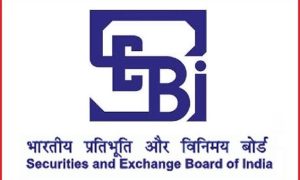Digital News Guru Education Desk:
The Securities and Exchange Board of India (SEBI) is a statutory regulatory body under the jurisdiction of the Indian Ministry of Finance. Established in 1988 and given statutory powers in 1992 through the SEBI Act, the organization is tasked with overseeing and regulating India’s securities and capital markets to ensure transparency, efficiency, and investor protection.
Mandate and Objectives of SEBI
SEBI operates with a clear mission to foster trust and integrity in India’s financial markets. Its primary objectives include:
- Protecting Investors: Ensuring that investors, particularly retail participants, are not subject to fraudulent practices or misleading information.
- Regulating Markets: Maintaining fair practices across stock exchanges, brokers, mutual funds, and other financial intermediaries.
- Promoting Development: Encouraging innovation and technological advancements to enhance market efficiency and accessibility.
SEBI’s Functions
SEBI’s roles are broadly categorized into three main functions: Quasi-Legislative, Quasi-Judicial, and Quasi-Executive. This enables SEBI to regulate, enforce, and create rules for India’s securities market.
- Regulation
- SEBI ensures that companies adhere to disclosure norms, financial standards, and other compliance requirements. For example, listed companies must publish quarterly financial results, ensuring transparency for shareholders.
- It regulates intermediaries like brokers, portfolio managers, and credit-rating agencies.
- Development
- SEBI has introduced measures like the T+1 settlement system, which ensures faster clearance of trades, enhancing liquidity.
- Investor awareness programs, such as SEBI Investor Education, equip retail investors with tools to make informed financial decisions.
- Enforcement
- SEBI has the authority to impose penalties for insider trading, fraudulent practices, and non-compliance with regulations. Recent high-profile cases, such as penalties against major companies for misinformation, underscore its active enforcement role.
Recent Initiatives and Reforms by SEBI
SEBI has been instrumental in reforming India’s capital markets. Recent developments include:

- Corporate Governance Reforms: SEBI has mandated stricter corporate governance standards for listed entities, including higher transparency in related-party transactions and board accountability.
- Framework for Social Stock Exchanges: SEBI introduced a framework for Social Stock Exchanges (SSEs), enabling social enterprises and NGOs to raise funds through the capital market.
- Mutual Fund Regulations: To protect retail investors, SEBI has tightened disclosure norms for mutual funds, including details on risk levels and asset allocation.
- Green Bonds: SEBI has laid down specific guidelines for issuing green bonds, promoting sustainability in financial practices.
Role of SEBI in Investor Protection
Investor confidence is central to SEBI’s regulatory framework. Its measures for protecting investors include:
- Investor Grievance Redressal: SEBI’s SCORES (SEBI Complaints Redress System) allows investors to lodge complaints against market intermediaries.
- Education Initiatives: SEBI regularly conducts workshops and issues educational material to promote financial literacy.
- Monitoring Misconduct: From curbing insider trading to penalizing pump-and-dump schemes, SEBI actively monitors market behavior to prevent malpractice.
Challenges Faced by SEBI
Despite its robust framework, SEBI faces several challenges:
- Technological Disruption: Rapid developments in financial technologies (FinTech) require SEBI to constantly upgrade its regulatory toolkit.
- International Integration: As Indian markets integrate with global financial systems, SEBI must align with international standards without stifling local innovation.
- Balancing Regulation and Growth: Excessive regulation can deter innovation, while lax oversight can lead to malpractice—a fine balance SEBI must navigate.
- Litigation: SEBI’s decisions are often challenged in courts, delaying enforcement.
SEBI’s Global Recognition and Future Outlook
SEBI is regarded as one of the most proactive regulatory bodies globally. Its adoption of technological tools, such as data analytics and artificial intelligence, to detect market irregularities demonstrates its commitment to maintaining a transparent and secure financial environment.

Moving forward, SEBI’s focus is likely to be on:
- Strengthening Cybersecurity: As digital trading platforms grow, securing data against cyber threats will be a priority.
- Sustainability Initiatives: Promoting green investments and climate-related disclosures will continue to be a focus area.
- Expanding Retail Participation: Simplifying processes and reducing barriers for small investors will ensure broader market participation.
Conclusion
The Securities and Exchange Board of India plays a critical role in shaping the dynamics of India’s financial markets. Its emphasis on transparency, investor protection, and systemic stability ensures that India remains an attractive destination for both domestic and foreign investors. While challenges persist, SEBI’s proactive stance and innovative reforms have positioned it as a pillar of strength for India’s evolving financial ecosystem.
You May Also Read: Lt. Governor of Delhi Approves Appointment of 232 Doctors









